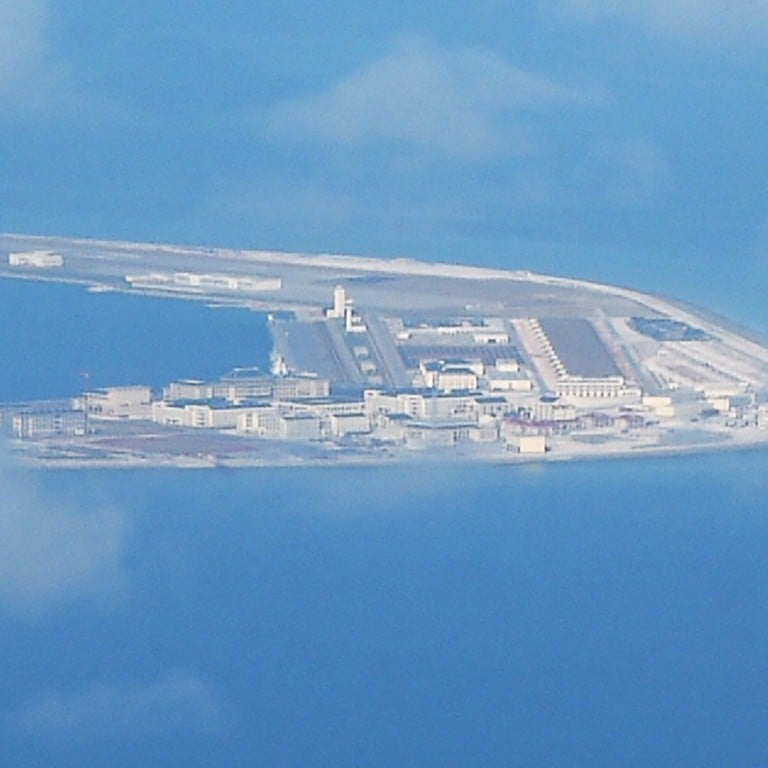
US accuses Beijing of using coronavirus as cover for South China Sea activity
- Following the sinking of a Vietnamese fishing boat, Washington calls on Beijing to ‘stop exploiting’ the pandemic to pursue its claims in the region
- State department spokesman says US is ‘seriously concerned’ by reports of the incident
In a strongly worded statement, the US State Department gave Washington’s view of last week’s collision of a Chinese coastguard ship and a Vietnamese fishing vessel near the disputed Paracel Islands.
State Department spokesman Morgan Ortagus said the US was “seriously concerned” by reports of the incident, at around midnight on Thursday, in which eight Vietnamese crew were plunged overboard as their vessel sank. All were later rescued by the Chinese ship and handed over to the Vietnam authorities.
“This incident is the latest in a long string of PRC actions to assert unlawful maritime claims and disadvantage its Southeast Asian neighbours in the South China Sea,” Ortagus said.
China says Vietnamese fishing boat rammed coastguard ship before sinking
She called on Beijing to “remain focused on supporting international efforts to combat the global pandemic, and to stop exploiting the distraction or vulnerability of other states to expand its unlawful claims in the South China Sea”.
The statement also pointed out that, since the start of the coronavirus outbreak, Beijing had announced new research stations on its military bases at Fiery Cross Reef and Subi Reef, and landed special military aircraft on Fiery Cross Reef.
China controls the two reefs and calls them Yongshu and Zhubi, respectively, but other Southeast Asian nations also claim ownership of the two.
Chinese Foreign Ministry spokesman Zhao Lijian said on Tuesday that the US frequently sent fighter jets to the South China Sea to violate China’s maritime rights, and called on Washington not to link maritime disputes with the Covid-19 pandemic.
Following the latest encounter – in which both sides claimed their ship had been rammed by the other – Chinese Premier Li Keqiang spoke by phone with Vietnamese Prime Minister Nguyen Xuan Phuc and appealed for bilateral cooperation to curb the coronavirus pandemic, according to Chinese state news agency Xinhua.
The report made no mention of the sinking of the Vietnamese fishing boat but said Li had stressed “China and Vietnam are important neighbours to each other”.
Soon after the latest incident, a think tank affiliated with Peking University released a report on Friday which claimed nearly 600 Vietnamese fishing boats had entered Chinese waters in March, including 40 which had sailed into uncontested Chinese territorial waters.
According to the South China Sea Strategic Situation Probing Initiative (SCSPI), most of the Vietnamese vessels – as many as 480 – were active in the Gulf of Tonkin. The report also accused Vietnamese law enforcement vessels of sheltering the “illegal, unreported and unregulated” fishing activities of the boats.
Vietnam wants a South China Sea dispute resolution pact with teeth, not more politics
Zhang Jie, a South China Sea expert from Chinese Academy of Social Sciences, said the number of Chinese fishing vessels had decreased dramatically in recent years, which could be one of the reasons the number of Vietnamese fishing vessels had increased.
But Gregory Poling, Director of Asia Maritime Transparency Initiative at the Centre for Strategic and International Studies, questioned the credibility of the report.
“Not only has it not been released in full yet, but SCSPI’s last two reports provided data that was impossible for outside experts to reproduce,” he said.
Additional reporting by Catherine Wong
Sign up now and get a 10% discount (original price US$400) off the China AI Report 2020 by SCMP Research. Learn about the AI ambitions of Alibaba, Baidu & JD.com through our in-depth case studies, and explore new applications of AI across industries. The report also includes exclusive access to webinars to interact with C-level executives from leading China AI companies (via live Q&A sessions). Offer valid until 31 May 2020.

